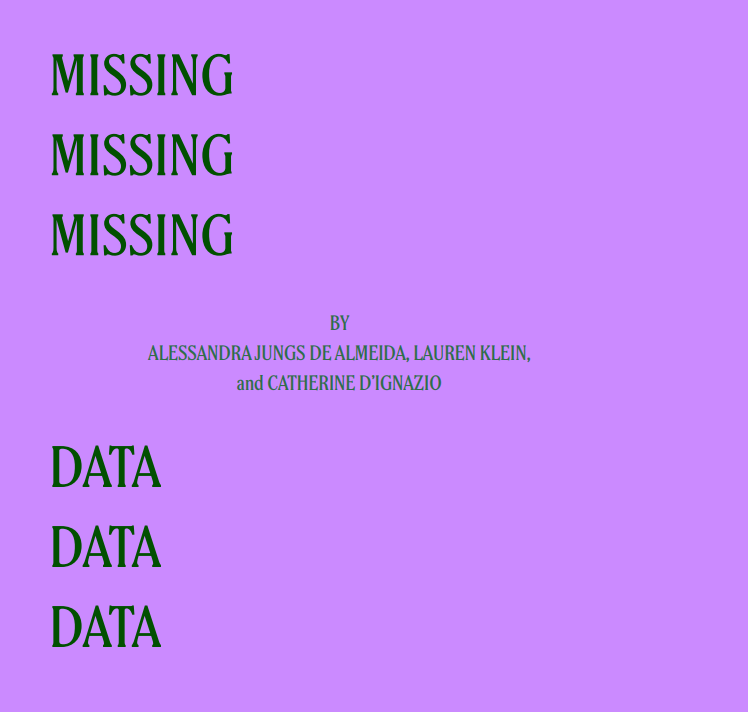This article explores the concept of “missing data” from a political and social perspective, rather than merely a technical one. While traditional definitions of missing data typically refer to information that is literally missing or incomplete, the approach taken here, aligned with artist and educator Mimi Ọnụọha, considers missing data as that which does not exist but should exist due to social and political demands. Missing data includes information that is completely nonexistent, but also data that is scarce, poorly collected, purposefully deleted, difficult to access, or underreported.
The article argues that missing data is a political and relational concept. On the one hand, it can represent a demand from civil society toward formal institutions, such as governments or other organizations, to collect and disseminate crucial information on public issues. On the other hand, data can also be deliberately kept missing by marginalized communities to protect themselves from institutional surveillance. In the latter case, they are “missing” only from the perspective of the institutions seeking access to them.
In this context, missing data reflects unequal power dynamics and informational conflicts between social groups and institutions. Data absence can be both intentional and symptomatic of the institutional neglect of certain groups or issues. This article considers that the key is not to evaluate data absence as something inherently “good” or “bad,” but to understand its social and political context: who is making the demand for data, from whom it is demanded, and why that information is considered missing.
Jungs de Almeida, A., Klein, L., & D’Ignazio, C. (2024). MISSING DATA. En J. Burrell, R. Singh, & P. Davison (Eds.), Keywords of the Datafied State.

